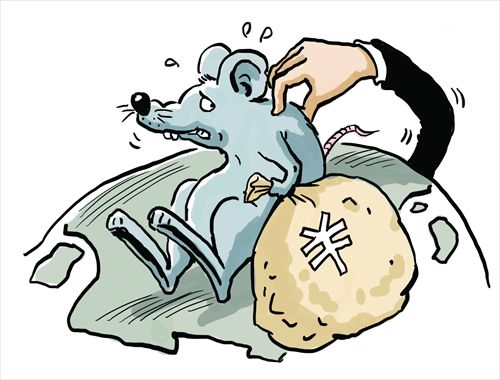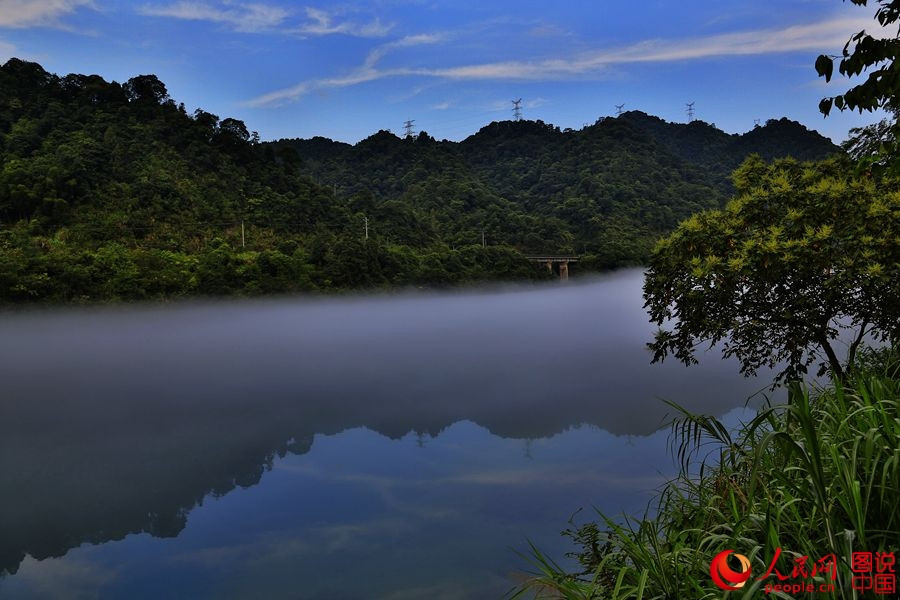 Vintage cars show kicks off in London
Vintage cars show kicks off in London
 Gorgeous scenery in NE China
Gorgeous scenery in NE China
 Picturesque Barkol grassland in Xinjiang
Picturesque Barkol grassland in Xinjiang
 Small Wild Goose Pagoda - A World Cultural Heritage Site along the Silk Road
Small Wild Goose Pagoda - A World Cultural Heritage Site along the Silk Road
 Maritime Silk Road Luxuries of the Han Dynasty
Maritime Silk Road Luxuries of the Han Dynasty
 Ciao! Chinese beauties!
Ciao! Chinese beauties!
 An eye feast: BFA freshmen registration
An eye feast: BFA freshmen registration
 Top 10 most lavish weddings
Top 10 most lavish weddings
 Most amazing chi-pao beauties
Most amazing chi-pao beauties
 Chinese lingerie brand arrives in Las Vegas
Chinese lingerie brand arrives in Las Vegas

Illustration: Liu Rui/GT
Chinese police have seized 88 economic fugitives in an international "fox-hunting" campaign that targets corrupt officials and suspects in economic crimes. The achievements in such manhunt show the prominent improvement of the ability of China's police force to cooperate with its international counterparts.
Due to territorial limitations, international manhunts call for trans-border cooperation, especially in terms of law enforcement. However, there are various difficulties and obstacles.
For instance, cooperation can be hindered because of ideological differences. There are obstacles at the "hard" level such as systematic barriers. The social system, judicial system, channels for criminal judicial assistance and cooperative relations between police will all add difficulties to fugitive hunting.
There are also obstacles at the "soft" level. For example, the credibility of the judiciary and the issue of death sentence will hinder the process of international police cooperation too.
Despite all these obstacles, the international community has reached consensus on enhancing cooperation to fight against trans-border crimes. In spite of ideology and political preferences, each country can easily find common interests facing criminal cases. This has become the internal driving force of international police cooperation.
Countries such as the US, Canada and Australia have all voiced support for China's anti-corruption campaign to assist China's hunt for corrupt officials abroad, because they don't want to bear the infamy of becoming "a paradise for criminals."
In recent years, since China has established a new concept of security, topics such as cooperating to fight against international crimes, dealing with transnational drug smuggling, and cracking down the "three evil forces" of terrorism, extremism and separatism have frequently appeared on the agenda of meetings among leaders.
This year marks the 101st anniversary of the establishment of the International Police Association (IPA). China's joining of the association in 1984 marks the start of the country's cooperation with international police law enforcement. Nowadays, the association has become an important platform for China to cooperate with international police.
As the public security work has entered a new phase, China's Ministry of Public Securityhas set up direct police cooperation with 83 countries and regions. The Chinese police have a presence in the headquarters of the UN and the general secretariat of the IPA.
After the 2011 Mekong River massacre, where 13 Chinese sailors were killed, China initiated a joint group comprising police from China, Laos, Myanmar and Thailand. They not only broke the case and punished the principal foreign criminal, but also established a joint law enforcement mechanism along the Mekong River.
Hunting for fugitives is a vital part of international police cooperation. It is also an extension of China's law enforcement. Raising the ability to cooperate with international police is an important step in constructing international manhunts.
The author is deputy dean of the Department of International Police Law Enforcement, People's Public Security University of China. [email protected]
 Military training in Hong Kong
Military training in Hong Kong Teahouses in Chongqing: Worship to the leisure lifestyle
Teahouses in Chongqing: Worship to the leisure lifestyle Giant white gourd weighing 87 kilograms appears in SE China
Giant white gourd weighing 87 kilograms appears in SE China Advanced arms help to safeguard China-ASEAN Expo
Advanced arms help to safeguard China-ASEAN Expo Leading director Wang Quan'an detained for 'buying sex'
Leading director Wang Quan'an detained for 'buying sex' Heaven on earth: Dongjiang Lake in Hunan
Heaven on earth: Dongjiang Lake in Hunan Mixed reaction to smartphone sidewalk
Mixed reaction to smartphone sidewalk Amazing aerial photos of China's Xisha Islands
Amazing aerial photos of China's Xisha Islands Top 10 world's highest-paid models 2014
Top 10 world's highest-paid models 2014 Lingerie show at 2014 Miss China
Lingerie show at 2014 Miss China Songstress Li Xianglan dies at 94
Songstress Li Xianglan dies at 94 Police recruiting posters
Police recruiting posters Anshun Daxi- Living fossil of Chinese drama
Anshun Daxi- Living fossil of Chinese drama Urban farmers in China
Urban farmers in China 'Firepower-2014 Weibei'military exercise
'Firepower-2014 Weibei'military exerciseDay|Week|Month